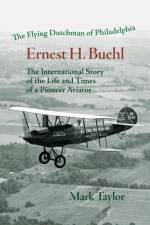von Mark Taylor
63,00 €
Trained as an aviation mechanic in Germany in the 1910s, Buehl arrived in the United States in 1920, at a time when we were just inventing civilian uses for airplanes. Later, as a pilot, he was responsible for training thousands of fliers. His work, both in Europe and North America, directly helped to push back major frontiers, both physical and social. Buehl's work made possible the first flight into the stratosphere in an airplane, and other record-breaking events. As a co-pilot, he flew the first round trip transcontinental passenger flight in North America, he helped to survey the first New York to San Francisco airmail route, and he pioneered routes into Canada's far north. Later, as an owner of four civilian airports and then during World War II, he oversaw training for thousands of pilots.Buehl's most famous student was C. Alfred ("Chief") Anderson, the man who became the lead trainer at Tuskegee during World War II. In part because of Buehl's insistence that he be examined fairly, Anderson, who became known as the "Father of Black Aviation," was the first black pilot to earn the Air Transport License. There are few books that feature the development of civilian aviation rather than military aviation but this is one. Buehl's work and contributions are set into the context of his time, and the discussion points out its relevance to today's world. Technical information is explained in the text, so the book should be accessible to those who come from nontechnical backgrounds. 185 photographs and images illustrate the book. The majority of these are from Buehl's personal collection and many are rare. The book is extensively documented and explained, drawing on hundreds of sources, including books, broadcasts and recordings, documents, letters and manuscripts, interviews, journal articles, magazines, maps, newspaper articles, and websites.

